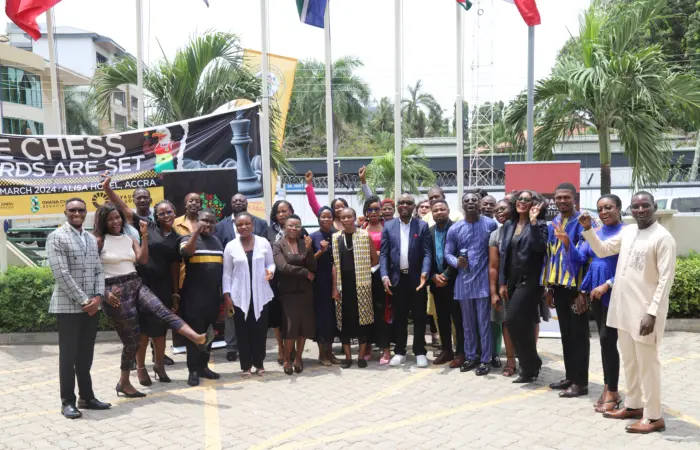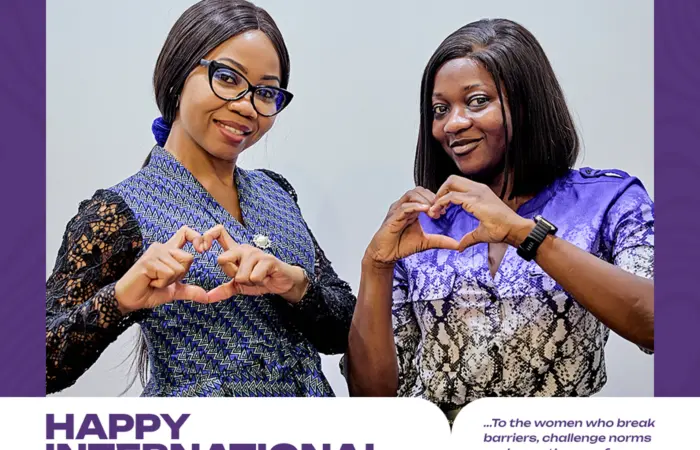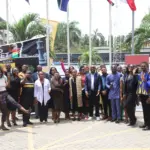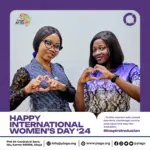Bayelsa and Kogi states are warming up for governorship elections on November 16. Deputy Political Editor RAYMOND MORDI looks at the challenges that may afftect the conduct of hitch-free elections by the Independent National Electoral Commission (INEC)
THE Independent National Electoral Commission (INEC) under the leadership of Prof. Mahmood Yakubu has turned full circle, with November’s governorship elections in Kogi and Bayelsa States. Yakubu’s emergence as INEC Chairman coincided with the inconclusive elections witnessed in the two states four years ago.
The commission faces another crucial test with the conduct of the governorship elections in the North-central and the South-south states, on November 16, 2019. The off-cycle elections in the two states provide opportunities for the commission to perfect its systems and processes and convince Nigerians that it has learnt some useful lessons from its past mistakes.
Kogi and Bayelsa are among the seven states where the governorship elections hold on different dates from the other states. It will be the first time that two off-cycle elections would be holding on the same date. Four years ago, the Kogi election was held on November 21, 2015, while that of Bayelsa took place on December 5, 2015. But, the governors will be sworn in on different dates: Kogi on January 26, 2020 and Bayelsa on February 13, 2020.
In Kogi State, Governor Yahaya Bello of the All Progressives Congress (APC) seeking re-election for a second term, while Bayelsa Governor Seriake Dickson of the Peoples Democratic Party (PDP) would be completing a second term in February next year.
Being the first major elections to be conducted since the 2019 general elections, the commission, observers said, must address the plethora of infractions that have cropped up at the various election tribunals on whether the card readers have helped to plug the loopholes for inflation of ballots.
Ahead of the elections, the nomination of candidates by the parties must be done within the stipulated time and in compliance with the Electoral Act. Yakubu’s words: “The conduct of primaries and nomination of candidates must be transparent and democratic in accordance with the provisions of Section 87 of the Electoral Act as well as our regulations and guidelines.”
The INEC Chairman said so far only three political parties have given notices indicating the dates for their primaries for both Bayelsa and Kogi governorship elections. He added: “The commission once again reminds party leaders to do the needful. In doing so, you should indicate not only the dates but also venues and time for the primaries.
“I urge you to avoid persistent rescheduling of your primaries or late minute change of venue which sometimes disenfranchise your members and make effective monitoring by the commission difficult. Where political parties opt for direct primaries, there should be proper register of members otherwise it will amount to conducting an election without the voters’ register.”
In Kogi State, particularly, the ruling APC is undecided about the mode of primary it is going to adopt to choose its flag bearer for the election. The national leadership of the party, it is gathered, is under pressure from the Presidency to reverse the indirect primary already ordered for the August 29. It was learnt that the party’s top hierarchy were already reviewing the decision in the overall best interest of the party.
The issue is believed to have generated tension among members of the National Working Committee who met in Abuja recently. The meeting, which took place at its national secretariat, was presided over by the National Chairman, Adams Oshiomhole. The meeting started a few hours after Governor Bello came to pick his Expression of Interest and Nomination Forms.
The party had adopted an indirect mode of primary for Kogi State, but kept mute on the Bayelsa State governorship primary fixed for the same day. But, about 20 APC governorship aspirants have protested against the decision, saying it would affect the fortunes of the party. They demanded direct primary instead and for a caretaker committee to be raised due to litigation over the State Working Committee.
Fears have been expressed in some quarters that the infighting over the primary could cost the party the governorship seat, as it happened in Zamfara and Rivers States during the last general elections.
The issue of security is another major challenge that would confront the commission during the conduct of the two governorship elections. This is not only true of Bayelsa, where militancy and violence has often been mixed with politics, but also of Kogi State, where reports during the last general elections painted a picture of violence and lack of enabling environment for expression of voter preferences.
A security expert, Dr. Joseph Ameh, said what Kogi people expect from President Muhammadu Buhari is for him to rein in security agencies and ensure that they are not at the beck and call of the ruling APC. Ameh said if security officials do their work with patriotism and in an unbiased way, politicians, especially gladiators would reckon that it is no longer business as usual. He said Nigerian voters have become wiser and know how to discipline selfish and arrogant leaders.
While recalling how, during the recent general elections, violence, intimidation and use of weapons to scare voters away became the order of the day, Ameh said if as many as six persons lost their lives in Kogi East Senatorial District, it could only be imagined what would happen during the governorship.
He said: “I am calling on President Buhari to ensure that there would be no gun-running and miltarisation during the November 16 governorship election. It is everybody’s concern, but we believe that the Federal Government would not be insensitive to the issues of security in Kogi State.
“Some of the things that happened during the last election may not be known to the Federal Government, but if the government was in the know, it would be a great blow to the integrity, transparency and even the anti-corruption war President Buhari said he is waging.
“It would be clear to everybody that the Buhari government is corrupt if the Kogi governorship election is allowed to be militarised; that is, if thugs are allowed to kill and maim during the November 16 governorship poll. We shall hold the Federal Government responsible to ensure that proper things are done.”
Other challenges INEC would confront in Kogi and Bayelsa include that of logistics and manpower, vote-buying, voter apathy and mobilization. For instance, one area INEC should demonstrate its capacity to learn from its mistakes is in the use of ad hoc staff. Recently a former chairman of the commission, Prof. Attahiru Jega, accused politicians of using university lecturers, who served as INEC’s ad hoc staff, to rig elections. Part of the allegation is that INEC officials collude with politicians to swap trained ad hoc staff.
Read Also: Breaking: Buhari plays video on INEC’s stand on results transmission
Already, INEC has commenced the review of the recruitment, training and deployment of ad-hoc staff ahead of the elections. Prof. Yakubu said reforms in the delegation of responsibilities by the commission to the ad-hoc election personnel has remained an exercise it will continue to review from one election to another. The INEC Chairman added that recruitment, training and deployment of ad-hoc staff, mostly members of the National Youth Service Corps (NYSC), students of tertiary institutions and university lecturers are crucial to a successful free, fair and credible election. He said with the large population of Nigeria, INEC needed the services of ad-hoc election personnel in the conduct of credible elections.
In recent times, vote-buying has become common in Nigerian elections and there is no reason to believe that Kogi and Bayelsa would be exceptions. Though the Electoral Act criminalizes vote-buying, because it is completely antithetical to the ethos and norms of democracy, it has become a common feature of party primaries and general elections conducted in recent years.
Similarly, the 2018 Revised Code of Conduct for Political Parties also enjoins all political parties and their agents shall not engage in buying of votes or offer any bribe, gift, reward, gratification or any other monetary or material considerations or allurement to voters and electoral officials. Notwithstanding its prohibition, vote-buying continues to be a widespread practice in recent elections.
There is also the issue of distributing uncollected Permanent Voter Cards (PVCs) by INEC. National Commissioner, Information and Voter Education, Mr. Festus Okoye, indicated recently that the commission will resume distribution of uncollected PVCs in Bayelsa and Kogi, ahead of the November 16 governorship elections. Okoye said that the commission would soon meet to decide on whether to hold Continuous Voter Registration (CVR) in the two states before the elections.
He said: “In the next one month the commission will take a decision on whether to conduct CVR for these two states, just before the elections. So, that particular decision has not been taken. Definitely the commission will take that decision. But what is certain is that we are going to distribute the uncollected PVCs in Kogi and Bayelsa before the conduct of governorship elections in the two states.”
There are 186,798 unclaimed PVCs in Bayelsa out of the 923,182 registered voters, while 269,000 out of 1.6 million registered voters in Kogi are yet to collect their PVCs.
Elections in this clime have always been characterized with low turnout of voters. For instance, out of the more than 84 million voters registered to take part in the last presidential and National Assembly elections, only 35 per cent of that number participated. This could be traced to lack of adequate mobilization, threat of violence or the cumbersome nature of Nigerian elections, where an intending voter must be ready to sacrifice several hours just to exercise his or her franchise.
In a nutshell, everything boils down to the fact that people do not have confidence in the capacity of INEC to organize free and fair elections. For example, in the words of political commentator, Dolapo Akinbolagbe, one of the popular rhetoric’s that is pervasive is the idea that one’s vote doesn’t count. He added: “There is this assumption (whether accurate or not it is debatable) that the corrupt nature of the political process has led to issues like electoral malpractices.
“One side-effect of voter apathy can be low voter turnout on election day if voting is non-compulsory. In countries or areas with compulsory elections, voter apathy may manifest itself in the form of a high proportion of spoilt ballots or ‘donkey’ votes.
“The issue of voter’s apathy became a heated topic during the 2019 presidential and governorship election. As we saw, the election postponement created a form of voter fatigue as it caused an anti-climax amongst those wanting to perform their civic duty. The anticipation was cut short as news of the election postponement came six hours before polling units opened. This was highly unfortunate for many that had to travel long distances in order to vote.”
All told, as the country heads towards Kogi and Bayelsa governorship elections in November, the commission said it will address all the identified challenges and lapses in the 2019 general elections and consolidate on the successes recorded to ensure it delivers credible, free and fair election in Kogi and Bayelsa come November 16.
Malam Mohammed Haruna, the National Commissioner in charge of Kogi, Kwara and Nasarawa states, who gave the assurance recently, identified logistics as one of the major challenges that confronted the last general elections. He said the large number of registered political parties that took part in the last election made the entire process cumbersome for the commission.
Source: The Nation






